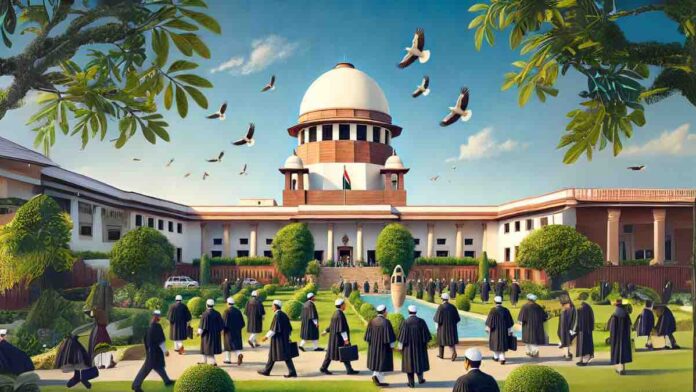The Supreme Court of India, in a significant decision, reiterated that judgments rendered by a High Court cannot be declared illegal under Article 32 of the Constitution. The ruling came in response to a writ petition filed by Vimal Babu Dhumadiya and others against the State of Maharashtra and other respondents. The bench, comprising Justice
To Read More Please Subscribe to VIP Membership for Unlimited Access to All the Articles, Download Available Copies of Judgments/Order, Acess to Central/State Bare Acts, Advertisement Free Content, Access to More than 4000 Legal Drafts( Readymade Editable Formats of Suits, Petitions, Writs, Legal Notices, Divorce Petitions, 138 Notices, Bail Applications etc.) in Hindi and English.




